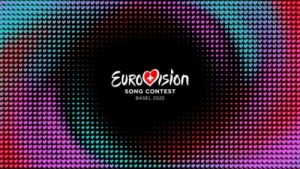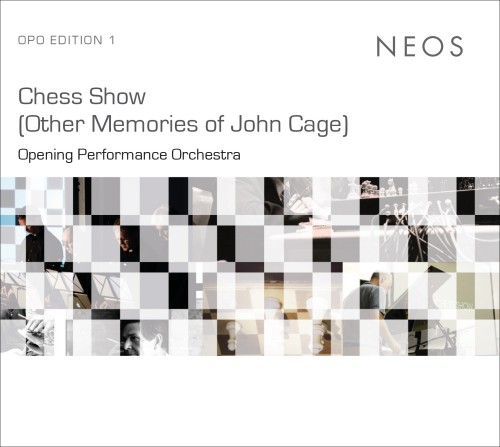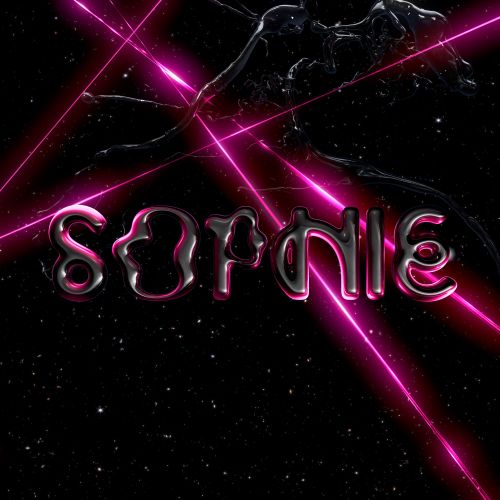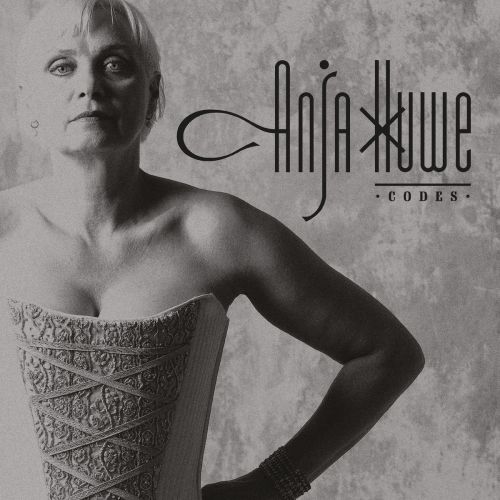 The most wonderful time of the year, part one.
The most wonderful time of the year, part one.
So I’ve been doing these wee previews for a while and there’s always a faint sense, tickling in my head, that the Eurovision a person sees in Eurovision week isn’t necessarily the whole of the thing. Because of course most countries have qualifying competitions. Last year, I listened to a few of the competitions and Nahaba‘s “GLASSS” was such a banger. And yet didn’t qualify for Ukraine.
Buoyed by this, I thought I’d go whole hog this year and see what the other competitions had to offer. That playlist runs to 454 videos, and I’m pretty sure I’ve missed a few along the way. It’s here if you’re interested:
A lot to get through, so this is going to be a bit bullet-pointy. But the Internet gave us all 5G ADHD, so you’ll be grand I’m sure. I’m going to ignore the actual winners of the competitions because I’ll cover them in the next Euro review.
You may ask ‘why?’ The answer is basically that Eurovision the competition proper has gotten very professional. Which makes for some killer music, but it also misses all the admirable tat and shite of Eurovision — which lives on in the national selections.Albania
Nothing shoddy from the Albanian selections but also a strong sense that the songs are picked for their appeal to (the nearest equivalent of) BBC Radio 2 parents. Though having said that, there’s very few songs that aren’t shot through with local instruments and styles, and most aren’t in English. Some very excellent singers — Mihallaq Andrea and Klea Dina both do a fine line is studied vibratos. Probably the song that least flicked my switches was “Rreziko” by Frensi Revania. Very reflective of my low tolerance for Harvester funk.
Belgium
Belgium feels a lot less ‘regional’ — which frankly I’m against. A small disappointment insofar as Grace‘s “Pull Up”, which is this year’s most “Fuego” song (Cyprus 2018), didn’t get through. Le Manou‘s “Filla à Papa” (I don’t know why young people all shout their names now) — is probably the best non-qualifier.
Croatia
Fenksta‘s “Extra” is the first showing of late-’90s style rapping which is presumably very 2025 Croatia. A few sightings of local culture — IVXN‘s “Monopol” in Croatian and adds local instruments to a pretty predictable song with a hot boy. Laurakojapjeva‘s “NPC” is probably the best song of the competition (and also the best of two songs called “NPC” this year) and she gets points for not shouting her name — bouncy pop deely which is somewhere in the region of donk-lite europop.
“Daj Daj” from Ogenj is very much in the vein of last year‘s runner-up “Rim Tim Tagi Dim”, so probably for the best it didn’t win. A band called Swingers doing a dogshit pastiche of swing music has the virtue of not being electro swing, which is a bit like saying cancer isn’t decapitation.
Estonia
Much like a lot of fancy Europe, there’s a lot of English-language pop that doesn’t necessarily say anything specifically Estonian. Some of it is passable (Elysa‘s “The Last To Know”), some of it pretty nice in a pretty-boy-pop way (Janek‘s “Frozen”). Probably the best of the non-qualifiers is An-Marlen with “Külm”, which is basically a trance number with Finnish lyrics, but it’s distinctly poppers o’clock and has the heft of some lovely slapping testicles.
Finland
Finland has arguably had something of a kick up the euro-arse with Käärijä‘s second place in 2023. And so their national winner this year is fucking preposterous. More on that in the next review, but if you’re a fan of paper-thin metaphors for orgasm and a woman doused in gloopy fluids, you’re in for a treat. Definitely a case of the right song winning.
Neea River‘s “Nightmare” does a good job of occupying eurotrance bangerland. “Hitaamin Hautaan” from Nelli Matula is a very good, very generic pop song in Finnish. Finland is perhaps towing or toeing the line between local identity and international pop generally, mostly singing in Finnish, mostly songs that you’d recognise from the radio (if you’re old enough to remember them).Greece
Not a strong field from Greece this year and nothing to top last year’s Rosalía-n banger “Zari” by Marina Satti. “Γη μου” by Κώστας Αγέρης [“Gi Mou” by Kostas Ageris] does a good job of that very Eurovisionly ethnic song with dance bits and (I think) a kemençe, but still not quite piquing my interest. There’s always 2026.
Iceland
Iceland’s tradition for Eurovision is either cardigan indie or BDSM electro, so it’s surprising that mumcore predominates (Flugdrekar‘s “Dagur Sig” is both mumcore and Bryan Adams-y, which is a worrying precedent). There are sightings also of grancore with “Aðeins Lengur” from Bjarni Arason, which is a lovely string-led thing that’s entirely Eurovision 1990s.
Italy
Italy’s San Remo Festival is the progenitor of Eurovision in general, as I understand it, so there’s a sense that the quality is a jump on many countries. Also, because they’re one of the countries that pays for Eurovision, there’s a bit of an onus to put on a show.
So there’s fair competition for the best non-qualifier here — I’d argue that many are better than the actual qualifier. Angelica Bove‘s “La Nostra Malinconia” is a lovely wee slice of girly pop. Angie‘s “Scorpione” isn’t too far from her near-namesake Angelina Mango who repped Italy in 2024 — a big pop number in the vein of golden era Britney (though obviously it’s all golden with her).
Italy is by a large margin the country with the most non-qualifying bangers. Oh, I didn’t mention Vale LP, Lil Jolie ‘s “Dimmi tu Quando Sei Pronto Per Fare l’Amore” — that’s a belter also.
Latvia
I’m guessing that Latvia has a healthy dance scene doing the rounds. Adelina‘s “Electric Love” has a distinctly Michael Jackson sound (good Jackson, mind you), Citi Zēni doing a good pass on poppy trance. Possibly the mark of a smaller nation (geographically) is that they tend towards English, which is true and a shame for Latvia.
Lithuania
Lithuania are perhaps a bit different to their neighbours — less a sheen of pop sensible-ness, which unfortunately means that ersatz electro-swing-ish like Black Biceps‘ “Visaip man reik” slips in. Which is not as bad as the The Ditties‘ “Zui Zu Bi” — which is definitely electro-swing and therefore fascism writ large.
Elsewhere, Donata‘s “Empower” is doing a middling job of ’80s-ish torch ballads and Euften‘s “Goodbye Hell” is some dreadful vision of ’80s metal slow numbers without the fun. Spraytan d’n’b makes its appearance in Gebrasy‘s “Whole” and Godo Yorke‘s “Neparodai”. Not sure if it’s much cop, but Hansanova‘s “Leilydo” does an out-of-place job of sounding distinctly Celtic (bodhrans, fiddles and the like).
Luxembourg
Luxembourg making their long-awaited return — prior to Ireland’s ’90s, they were the leading country for number of wins. The contest has expanded substantially of course. I’m going to stick it out there and say the winner was the best — nothing as shameful as electro swing here, but a lot of what you might expect — soulful pro-women stuff (Rhythmic Soulwave‘s “Stronger”, Rafa Ela with “No Thank You”), the baleful modern ballad (Mäna and “Human Eyes”). Only a wee, list but enough to show that they’ve put some money into the competition.
Malta
So Malta copped some controversy this year for entering a song that features the word ‘cunt’, albeit masked with “it means dance in Maltese”. I’m very here for it, so any other songs are guaranteed to take second place to a decent swear.Dre’ Curmi‘s “Te Amo” does a decent job of very Eurovision holiday pop. JVF‘s “Festa” is likewise a festively jolly tune. Probably the best non-qualifier is Kantera‘s “Lararatatakee” with the old ‘ethnic’ instruments and contemporary production trick. A deserved winner were it not for my (correct) predilection for the word ‘cunt’.
Moldova
Poor Moldova actually withdrew this year, citing finances and quality issues and it’s fairly obvious from watching these why that happened. Nevertheless, this is also a national selection full of old Eurovision.
A few songs that are very Eurovision, but not in a good way — like the winner, which is a bit of a shame. Moldova has a long history of being a bit mad and this year is no exception. Predein Cristian‘s “Moldavian Dance” does a great job of that electronic production / folk instrumentation game.
For me there’s a sense with quite a lot of it that these are definitely amateur musicians. I’m all in favour of that (except, of course, when they get vilified on an international stage): Vadim Eleni‘s “Mamă, Să Fii” has the quality of a guy who plays his own tunes on acoustics at open mics. It’s a good tune and it’s an unpolished performance, which I’m very up for seeing on the eurostage. Similarly “Alexia” by Y-gaga Band features the guy apparently singing the lyrics off his phone.
Montenegro
Back in the realm of the somewhat-professional with Montenegro. Meaning passable Eurometal (Baryak‘s “Dva Srca”), less passable Eurometal (Bend “9” and “Stop War”), quite nice jazz-inflected pop (Đurđa‘s “To Ljubav Je”). A majority of songs in Montenegrin, which is nice. The winner is probably the best of an average lot, but I’m still not that fussed by it. More amateurish nonsense next time please Montenegro.
Poland
Poland’s national selection seems to have a fair amount of professionalism — decently produced videos and that. Chrust‘s “Tempo” has a very designed sense of Lady Gaga-ian dancing. The song isn’t for me, but it’s a proper pop proposition. Poposition, if you will. Though on the other hand, Janusz Radek‘s “In Cosmic Mist” does seem to have a vide of him singing in his bathroom into a phone mic.
Portugal
Portugal tends towards singing in Portugeuse and also keeping a fairly Portugeuse flavour. So we get bagpiped beauty from A Cantadeira‘s “Responso à Mulher”. Something that it’s difficult to imagine winning Eurovision, but definitely sticking to my playlists for this year.
Henka‘s “I Wanna Destroy You” is in that Linkin Park / Evanescence area which is nice and all, but I could also go without. Jéssica Pina‘s “Calafrio” has a soulful jazz vibe that’s a bit like the Brand New Heavies or those ’90s things. Could be cloying but isn’t. There is quite a bit of smooth and jazzy business here and while much of it is not bad (see Margarida Campelo and “Eu Sei Que O Amor”) it’s not really very Eurovision. Still, well worth an hour or so of your time.
Spain
Portugal’s Iberian neighbours are perhaps a bit more internationalist in output. Carla Friga‘s “Bésame” is a banging slice of dancefloor pop. Chica Sobresalta and “Mala Feminista” gets in on that ever-important feminist mumpop deely. Daniela Blasca‘s “Uh Nana” is somewhere between Beyoncé and Rosalía, which is no bad thing.
Ukraine
So part of my inspiration for this was Ukraine’s Nahaba with “Glasss”, which ended up being my favourite song of the year and easy to miss. Nothing this year from Ukraine has topped that, but Ukraine are always worth Euro watching, for my money.
Ireland
Last year’s “Bambi Thug” arguably broke the paralysis of Irish selection (and worth saying that non-qualifier Ailsha‘s “Go Tobann”, was pretty lively last year.
So we get sexy electro business from Bobbi Arlo and “Powerplay”. And the eventual winner. Unfortunately, the rest of it is very insurance advert Celticisms or Samantha Mumba (as in literally Samantha Mumba). All passable, but also very Ireland in Eurovision for the last thirty years, which is not a strong look (not least for a country with such a rich musical heritage).
Norway
Another impetus for this review that you’ve doubtless carefully inhaled up to here is that Erika Norwich‘s “My AI” last year was a strong non-qualifying highlight and scored enormous points for me in the competition of abject hardcore-flecked nonsense.
Serbia
Strong sense that there’s a theme of adult pop here. Which is fine, I guess, but I could really do with some nonsense at this point. AltCtrl‘s “Mamurna Jutra” does a fine job of something on that goth / electro-pop border (which describes New Order well in my head). Anton‘s “U Grad” and Jett Vega‘s “Rolerkoster” are both pretty Harvester funk. Bojana x David and their “Šesto čulo” is definitely pointed at the dancefloor and maybe there’s a hint of hurdy gurdy sample in there.
Best non-qualifier (and better than the actual qualifier) is everyone’s favourite lairy Serb Mimi Mercadez with “Turbo žurka”. Very much the kind of cocksure shouty pop that I can get behind, with Tam and “Durum Durum” a close second place with its dark trance over frame drums waft.
Armenia
Eurovision is always a good time to remind yourself that, despite everyone you know not liking them, U2 are a massive band. Altsight‘s “Dare To Dream” doesn’t sound like U2, but it’s got the spirit of limp rock cack. Anahit Hakobyan, Gasoiia‘s “Wild” doesn’t quite hit with me (despite the duduk sample), but there’s something going on rhythmically that I like. Athena Manoukian and “DaQueenation” does a good job of appealing the ‘slay, queen‘ demographic, which is always Euro-important.
Denmark
Back into English-singing Europe here, which is a shame. It’s all a bit international pop in flavour, which is nice enough; but I could go for a smidge of Danish. The winner is by a large margin the best, which is a testament to the enduring appeal of trance music versus nice-enough songs for mums.
Germany
Unlike the other funders of Eurovision, Germany seems to enjoy local humour. Feurschwanz‘s “Knighclub” is a medieval-themed dance-metal number and it’d probably get a lot of traction if it’d won. Absolute nonsense. Also nonsense is Cloudy June‘s “If Jesus Saw What We Did Last Night”, a part-metal number with a stock in Christian-baiting.
San Marino
One of those countries that have strong links to a bunch of countries, meaning their competition is a lot larger than you’d imagine. And featuring a lot of Italians, naturally. Besa‘s “Tiki” does a good job of ’80s holiday vibes for the verse and Feugo-isms in the chorus. CuRLi‘s “Juliet” reminds me that there’s a dearth of boybands at Eurovision and also reminds me why that’s a blessing. Not a shining Euroselection, this one.
Slovenia
Slovenia has a smattering of Slovene numbers, which I’m OK with. Perhaps less in the slow ballad, which is nice. Astrid And The Scandals‘ “Touché” sounds like halfway decent dancefloor indie from the last twenty years. Eva Pavli‘s “Niti” has something of the ethnic-ish trip-hop-ish sound that’s been prevalent since about the mid-’90s. July Jones‘s “New Religion” could make a decent crack at support for Lady Gaga if she swings through Ljubljana.
The actual winner was not as grand as these two, sadly, and it’s a clear example of why something needs to be done, like letting me pick everyone’s entry.
Sweden
Sweden are, by this point, the masters of Europrofessionalism and unfortunately that comes across in the national selection. Adrian Macéus‘s “Vår Första Gång” — cute boy, slow song, yawn. Albin Johnsén feat. Pa and “Upp I Luften” is a generic pop number with some rapping but no real merit. Both of these are in Swedish though, so not terrible.
Dolly Style‘s “Yihaa” is possibly a bit of Steps-y fun, but I think in the aftermath of Katy Perry space-feminism it’s worth being cynical of something that reminds me of hen-do bellends. Ella Tiritello‘s “Bara Du Är Där” is a lovely wee girly song that’s probably about how boys make her sad. Bonus points for being in Swedish. Fredrik Lundman‘s “The Heart Of A Swedish Cowboy” is worth a gander if only for being an astonishing pastiche of country shot through with very paltry lyrics.
Kaliffa‘s “Salute” is a similarly perplexing mix of cultures, being as it’s a bit holiday pop from a country that’s cold as shit (as I understand it). Linnea Henriksson‘s “Den Känslan” sounds like ’90s pastiches of the ’60s and I’m OK with it for reasons that I shan’t be looking into further. Possibly the shock of the competition is that Måns Zelmerlöw‘s “Revolution” didn’t win, given as he’s a perennial Eurofavourite (“Heroes” won in 2015). Scarlet‘s “Sweet N’ Psycho” is a bit of a surprise insofar as it’s got all the hallmarks of an Icelandic BDSM electro number. Nowt so queer as folk and that.
-Kev Nickells-



